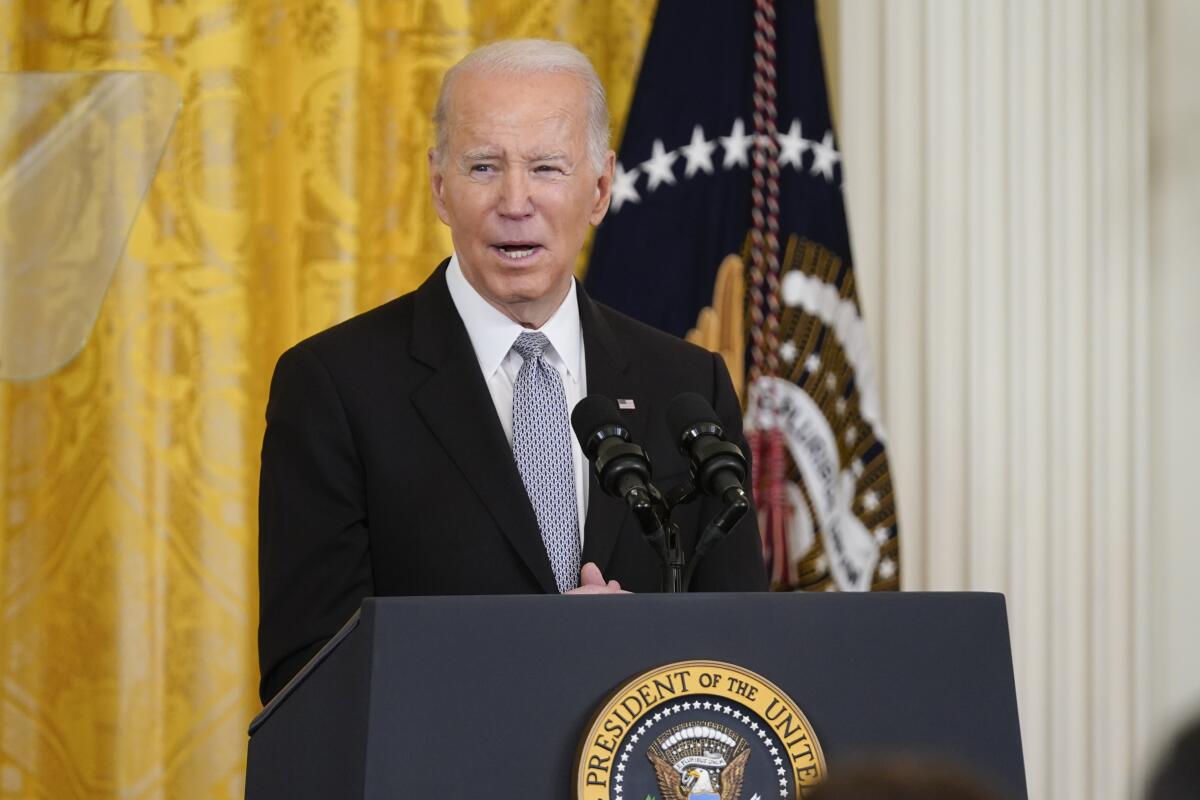Biden signs bill to declassify information on COVID origins

- Share via
WASHINGTON — President Biden signed a bipartisan bill Monday that directs the federal government to declassify as much intelligence as possible about the origins of COVID-19 more than three years after the start of the pandemic.
The legislation, which passed both the House and Senate without dissent, directs the Office of the Director of National Intelligence to declassify intelligence related to China’s Wuhan Institute of Virology. It cites “potential links” between the research that was done there and the outbreak of COVID-19, which the World Health Organization declared a pandemic on March 11, 2020. The law allows for redactions to protect sensitive sources and methods.
U.S. intelligence agencies are divided over whether a lab leak or a spillover from animals is the likely source of the deadly coronavirus. Experts say the true origin of the pandemic, which has killed more than 1.1 million people in the U.S. and millions more around the globe, may not be known for many years — if ever.
Scientists have found raccoon dog DNA commingled with the coronavirus in samples from the Huanan seafood market in Wuhan in early 2020.
Biden, in a statement, said he was pleased to sign the legislation.
“My Administration will continue to review all classified information relating to COVID–19’s origins, including potential links to the Wuhan Institute of Virology,” he said. “In implementing this legislation, my Administration will declassify and share as much of that information as possible, consistent with my constitutional authority to protect against the disclosure of information that would harm national security.”
A timeline of COVID-19’s early weeks in China, beginning with the emergence of the first patient on or around Nov. 18.
More to Read
Get the L.A. Times Politics newsletter
Deeply reported insights into legislation, politics and policy from Sacramento, Washington and beyond. In your inbox twice per week.
You may occasionally receive promotional content from the Los Angeles Times.












